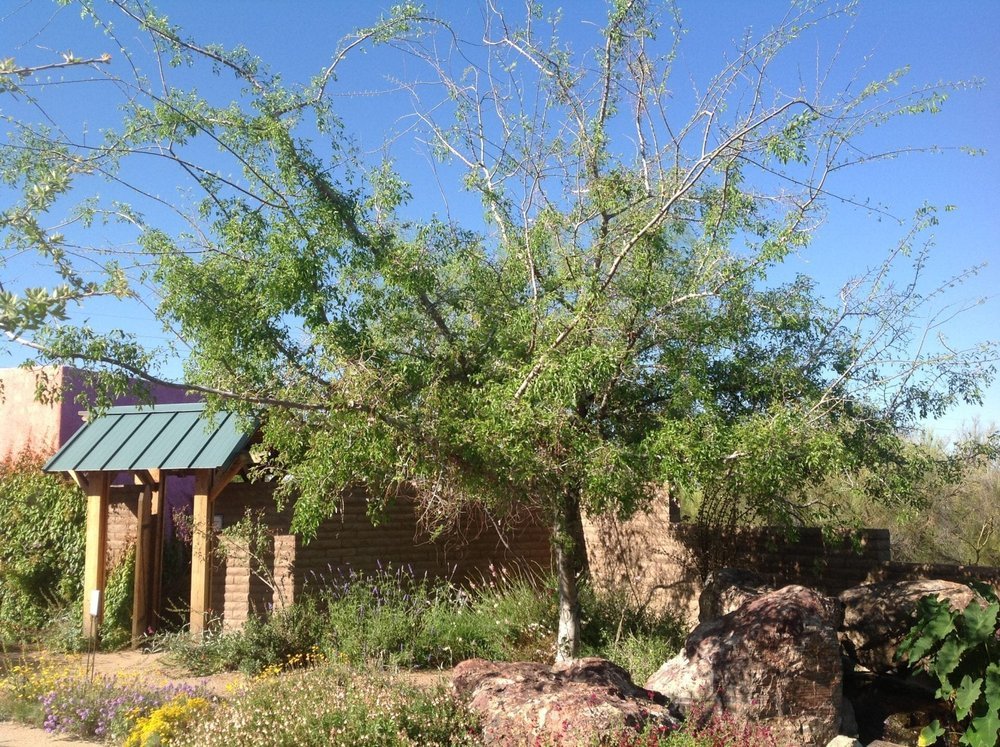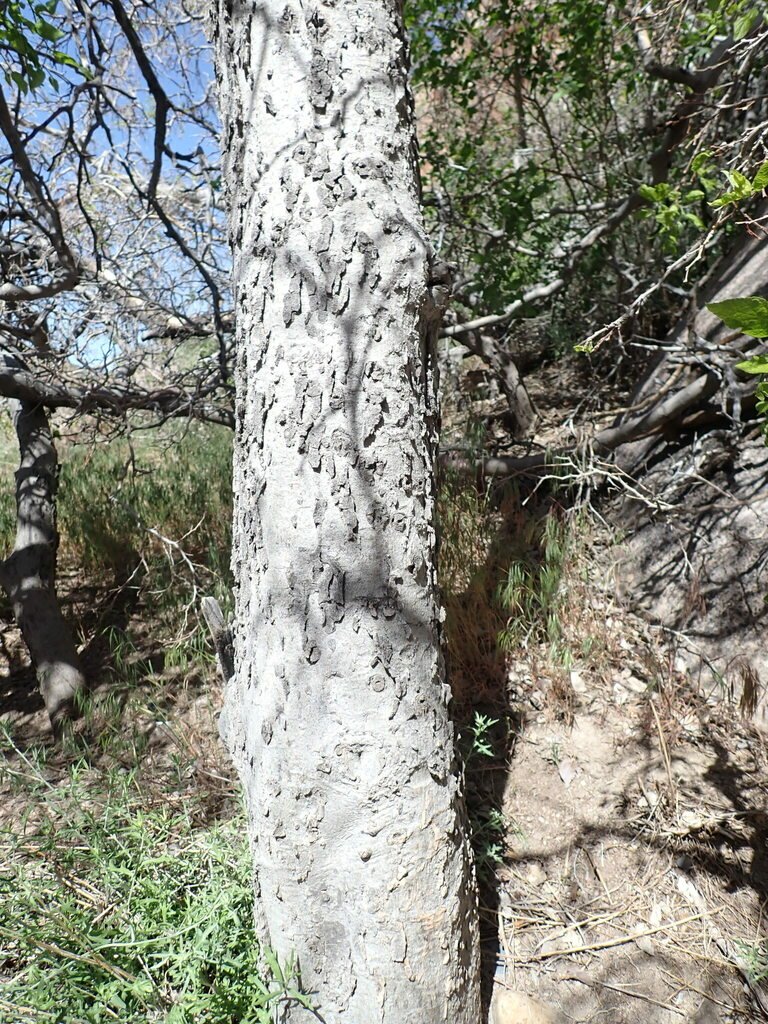Canyon Hackberry
Celtis reticulata
Family: Cannabaceae
OTHER NAMES
netleaf hackberry
Spanish: cumbro, gumbro, cumaro, combro, garabato blanco, uchic
CHARACTERISTICS
Large, deciduous tree 40-50’ tall. It is in flower in March to April, and the seeds ripen in October—the fruits are usually more reddish and persistent on the trees. The species is hermaphrodite (has separate male and female flowers on the same tree). Unusual warty trunk with age.
LANDSCAPE USE
Large shade tree.
Photo of Celtis reticulata by Mountain States Wholesale Nursery
GROWING CONDITIONS
AN EXPLANATION OF TERMS USED
SUN part to full or even reflected heat
WATER moderate to regular water
SOIL tolerant of most soils
HARDINESS hardy to -20°F
BASIN low to middle
CONTAINER can handle container but will not attain full size
NUTRITION low
MAINTENANCE very little
ECOLOGY
This species is primarily pollinated by bees. Incredible habitat tree for birds, fruit for birds and other animals, nectar rich flower for many insects. Larval host for the following butterfly species:
American Snout (Libytheana carinenta)
Hackberry Emperor (Asterocampa celtis ssp. antonia)
Empress Leilia (Asterocampa leilia)
Texan Emperor (Asterocampa clyton ssp. texana)
Dusky Emperor (Asterocampa idyja ssp. argus)
Silver Emperor (Doxocopa laure ssp. laure)
Question Mark (Polygonia interrogationis)
ETHNOBOTANY
Fruits are best cooked into preserves (the desert hackberry is a much better fruit raw). Wood used for fuel and for posts. The Kayenta Navajo use this plant medicinally to treat indigestion.
NATURAL DISTRIBUTION
Found along streams and rocky canyons, from 1,000-7,500 ft. in along the western and through the southwestern United States; south into Mexico.
TAXONOMY AND NAME
This species is in the Cannabaceae, the hemp family. There are 73 species of Celtis with a cosmopolitan distribution.
Formerly known as Celtis laevigata var. reticulata.
Celtis is a Greek name for the old world hackberry trees. The species name reticulata means “net veined” referring to the venation of the leaves.
The fruits of canyon hackberry eventually turn red and are dry (compared to the orange, sweet fruits of desert hackberry). Photo by Cyndie Segovia, iNaturalist
Trunks develop a corky, worty, texture. Photo by Neil O. Frakes, iNaturalist
Galls may form caused by various psyllids, this one caused by hackberry petiole gall psyllid, Pachypsylla venusta. This gall will cause no problems for the tree. Photo by BJ Stacey, iNaturalist
Canyon hackberry is deciduous in winter, photo by Rich Hoyer, iNaturalist





